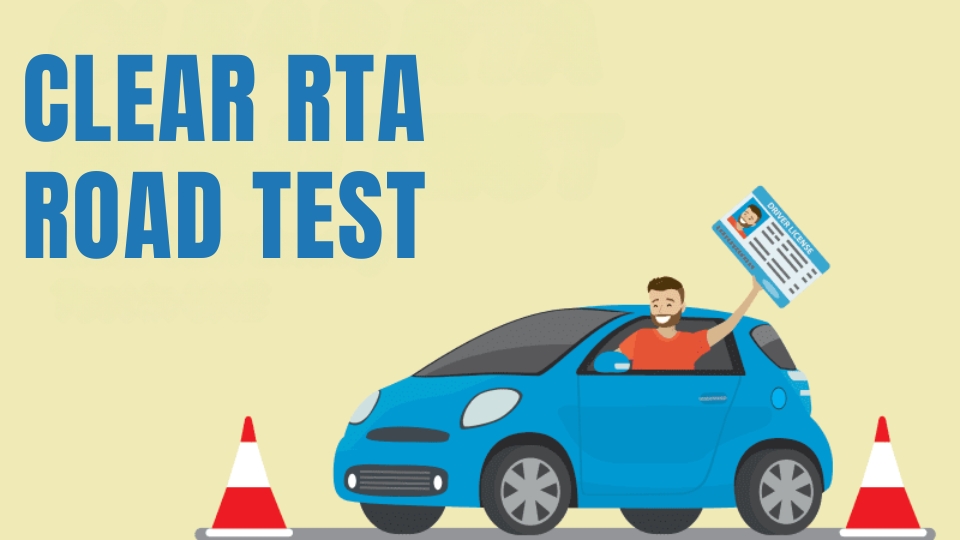The United Arab Emirates (UAE) has introduced significant changes to its traffic regulations, aiming to enhance road safety and streamline licensing procedures. The new Federal Decree-Law No. (14) of 2024 on Traffic Regulation will take effect on March 29, 2025. This article provides a comprehensive overview of the key aspects of the new traffic law, focusing on driving license suspension rules, exemption categories, and other crucial changes. Reported Khaleej Times
Lowering the Minimum Driving Age
One of the most noteworthy changes is the reduction of the minimum age for obtaining a driving license for cars and light vehicles from 18 to 17 years. This change aligns the UAE with international standards and allows younger individuals to receive formal driving education earlier. However, to obtain a license, applicants must:
- Undergo a mandatory medical examination approved by the licensing authority.
- Enroll in a certified driving institute.
- Successfully pass both theoretical and practical driving tests.
This initiative aims to introduce responsible driving habits at an earlier stage, ensuring young drivers are well-prepared before hitting the road.
Revised License Suspension and Revocation Rules
To improve road safety, the new law imposes stricter rules on driving license suspension and revocation. Authorities now have the power to suspend, cancel, or deny the renewal of a license if a driver is deemed medically unfit or poses a significant safety risk. Some key provisions include:
- Medical Fitness Requirements: Drivers diagnosed with serious medical conditions that impair their ability to drive safely may have their licenses revoked.
- Serious Offenses: Reckless driving, causing injury or death, damaging property, or driving under the influence of alcohol or drugs can lead to suspension or revocation.
- Repeat Violations: Drivers who accumulate multiple serious traffic offenses may face extended license suspensions and mandatory rehabilitation programs.
The Executive Regulations accompanying the law will specify the detailed procedures for suspension, rehabilitation, and reinstatement of licenses.
Stricter Penalties for Driving Under the Influence
The UAE continues its zero-tolerance policy for driving under the influence (DUI). The new law introduces severe penalties for those caught driving while intoxicated by alcohol, drugs, or psychotropic substances. The penalties include:
- First Offense: A minimum fine of AED 30,000 and a six-month license suspension.
- Second Offense: A minimum one-year license suspension.
- Third Offense: Permanent revocation of the driving license.
- Drug-Related Offenses: Fines can reach up to AED 200,000 along with mandatory imprisonment.
These stringent measures aim to deter reckless behavior and prevent road accidents caused by impaired driving.
Penalties for Driving Without a Valid License
The law imposes heavy penalties on individuals caught driving without a valid UAE driver’s license or using an unrecognized foreign license. The penalties include:
- First-Time Offenders: Fines ranging from AED 2,000 to AED 10,000.
- Repeat Offenders: A minimum of three months in jail and fines up to AED 100,000.
These measures emphasize the importance of obtaining a legally recognized driving license before operating a vehicle in the UAE.
Enhancing Pedestrian Safety
The revised law introduces stricter penalties for jaywalking and pedestrian-related violations. The new provisions include:
- Jaywalking Fines: Up to AED 10,000 if the violation results in an accident.
- Crossing High-Speed Roads Illegally: In areas with speed limits of 80 km/h or higher, pedestrians who cross from non-designated areas may face a minimum of three months in jail and/or a fine of at least AED 10,000.
These rules aim to promote safer pedestrian behavior and encourage the use of designated crossing areas.
Vehicle Impoundment for Severe Offenses
The new law imposes stricter rules for vehicle impoundment in cases of serious violations such as:
- Street Racing
- Excessive Speeding
- Reckless Driving
Offenders may have their vehicles impounded, and the cost to release an impounded car now starts at AED 50,000. This measure serves as a strong deterrent against dangerous driving behaviors.
Traffic Priority Rules for Safer Roads
To improve road safety and reduce confusion at intersections, the law clarifies traffic priority rules:
- Priority at Intersections: Traffic from the main road has the right of way.
- Roundabout Rules: In the absence of traffic signs, vehicles coming from the left have priority.
These clear guidelines ensure smoother traffic flow and prevent unnecessary accidents.
Utilizing Modern Technology for Traffic Enforcement
The law recognizes the importance of modern technology in monitoring and enforcing traffic regulations. The government will expand the use of:
- AI-powered surveillance systems to detect violations such as speeding, distracted driving, and seatbelt non-compliance.
- Automated traffic cameras to improve monitoring and enforcement.
By integrating advanced technology, authorities aim to enhance road safety and reduce human errors in traffic enforcement.
Public Awareness and Road Safety Campaigns
To ensure compliance with the new regulations, the UAE government is launching comprehensive awareness campaigns. These initiatives include:
- Social Media and Television Ads to educate the public about new rules.
- Educational Programs in Schools and Driving Institutes to instill road safety knowledge in young drivers.
- Workshops for Professional Drivers to ensure taxi, truck, and bus drivers fully understand the new regulations.
Through these efforts, authorities hope to build a culture of responsible driving across the country.
Exemption Categories for License Suspension
The new law also specifies exemption categories for certain individuals whose licenses may not be subject to immediate suspension. These exemptions include:
- Emergency Service Drivers: Police, ambulance, and fire department personnel may be exempt from license suspension under specific circumstances.
- Diplomatic and Government Officials: Special provisions apply to diplomats and high-ranking government officials in case of minor infractions.
- Individuals with Special Medical Conditions: Drivers with certified medical conditions may receive conditional exemptions based on the severity of their condition and risk assessment.
These exemptions ensure that essential service providers and individuals with legitimate reasons are not unfairly penalized.
Conclusion
The UAE’s new traffic law introduces comprehensive changes designed to enhance road safety, regulate driver behavior, and integrate modern technology into traffic management. From lowering the minimum driving age to imposing stricter penalties for DUI offenses, the updated regulations aim to create a safer driving environment for all road users.
By understanding and adhering to these new rules, residents and visitors can contribute to a safer and more efficient road system in the UAE. Authorities continue to emphasize awareness, enforcement, and rehabilitation to ensure compliance and reduce traffic-related incidents. As these changes come into effect on March 29, 2025, staying informed and following traffic laws will be crucial for all motorists and pedestrians alike.





